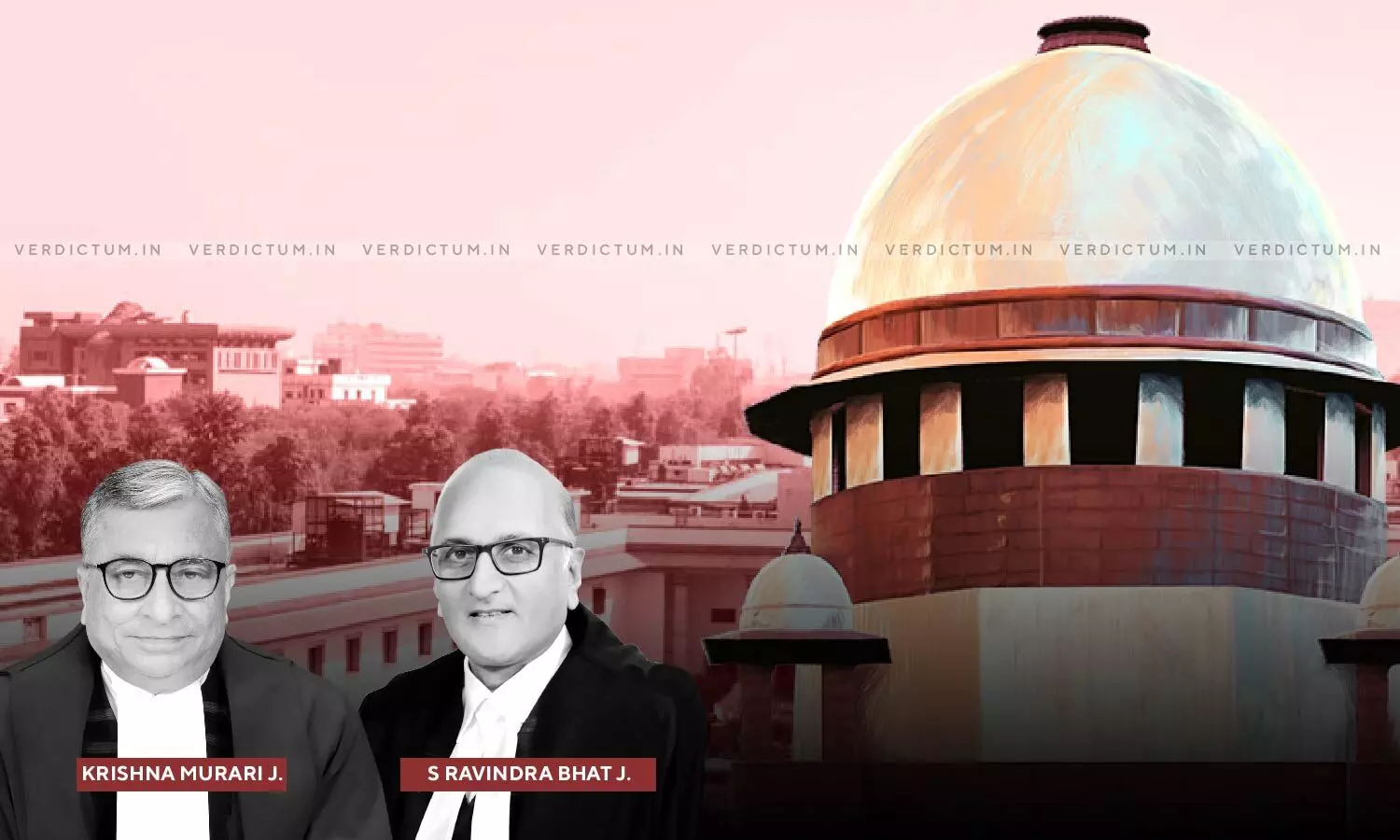
Supreme Court Enhances Compensation Awarded By Karnataka HC To Worker Engaged In Construction Of Government Hospital
 |
|The Supreme Court while allowing an appeal has recently enhanced the compensation at Rs. 9,30,000/- to the worker awarded by the Karnataka High Court who was engaged in the construction of a government hospital.
The Bench comprising Justice Krishna Murari and Justice S. Ravindra Bhat while considering the fact that the appellant suffered from disablement of permanent nature stated –
"The disablement has incapacitated her from doing the work which she was capable of doing. The said work was of that of a laborer. Therefore, the Commissioner for Workmen's Compensation was wrong in holding that the disability of the appellant will have to be treated as 20% disability as the work of an appellant involves lifting heavy weights and the appellant has been rendered incapable from doing such work due to her disability. Hence, the case of the appellant will be covered by the definition of 'total disablement', therefore, being 100% disabled."
The Bench further held that the order passed by the High Court is not liable to be sustained as the position of the appellant after the accident incapacitated her from carrying out her vocation as a labourer.
Advocate Shankar Divate appeared on behalf of the appellant.
Advocate Parijat Kishore appeared for the respondents.
Brief Facts –
The appellant was engaged in the construction of a government hospital at Bidar, Karnataka, and respondent no. 1 i.e., Manager, Regional Office, NCC Limited was the contractor and undertook the construction of upgradation of the hospital building. One day, the appellant along with other labourers was attending the work of shifting the cement from the ground floor to the second floor and during that time, the centering plate collapsed on the head of the appellant who fell from the second floor to the ground floor. She was taken to the hospital wherein it was established that she has sustained a fracture of the spinal bone and compound fracture on various parts of the body. The Doctor that she would not be able to lift any kind of weight for the rest of her life.
The appellant filed compensation application under Section 10 of the Employees Compensation Act, 1923 before the Commissioner seeking compensation of Rs. 20 lakhs along with interest at 18% p.a. from the date of the accident. The Commissioner held that the appellant has not proved that she was paid Rs. 600 per day as cooli and accordingly computed notional income at Rs. 6,000/- per month. Hence, the Commissioner awarded compensation of Rs. 1,75,000/- to the appellant. The appellant being aggrieved by this filed an appeal before the High Court. The Court while partly allowing the appeal enhanced the compensation to Rs. 2,19,512/-. The appellant, therefore, being dissatisfied with the order of the Court approached the Supreme Court.
The issue involved in the present matter was primarily related to the determination of the quantum of compensation awarded under various heads by the Commissioner and the High Court. The Supreme Court in this regard noted, "Ideally, the compensation should be provided to the employees against the hazards of employment to which an employee is exposed. This also includes any occupational disease or industrial accident that the employee may encounter arising out of or during the course of employment which leads to disability or death."
The Court further noted that the distinction between the two types of partial disablement depends on the fact whether the disablement results in a reduction of earning capacity in the particular employment in which he was engaged at the time of the accident or in all employment in which the employee was capable of doing.
The Apex Court also observed, "Taking the type of disability into concern, just compensation should to awarded to the person aggrieved. "Just Compensation" should include all elements that would go to place the victim in as near a position as she or he was in, before the occurrence of the accident. Whilst no amount of money or other material compensation can erase the trauma, pain and suffering that a victim undergoes after a serious accident, (or replace the loss of a loved one), monetary compensation is the manner known to law, whereby society assures some measure of restitution to those who survive, and the victims who have to face their lives."
The Court while considering the fact that the disability report showed permanent partial disability of about 58% of the limb corresponding with 26% whole body held, "The functional disability of the appellant being 100%, her age being 40 years and income being Rs.8000/-, 60% whereof works out to be Rs.4800/- and applying the multiplier of 184.17, as per Schedule IV of the 1993 Act, the compensation works out to be Rs.8,84,016/-. Adding an amount of Rs.42,200/- towards medical expenses for which the bills were presented, the total compensation works out to be Rs.9,26,216/- rounded of to Rs. 9,30,000/-. The appellant shall also be entitled for payment of interest @ 9% per annum, from the date of making the application till the date of actual payment."
Accordingly, the Apex Court allowed the appeal and enhanced the compensation.
Cause Title – Chandramma v. Manager, Regional Office, NCC Limited and Anr.
Click here to read/download the Judgment